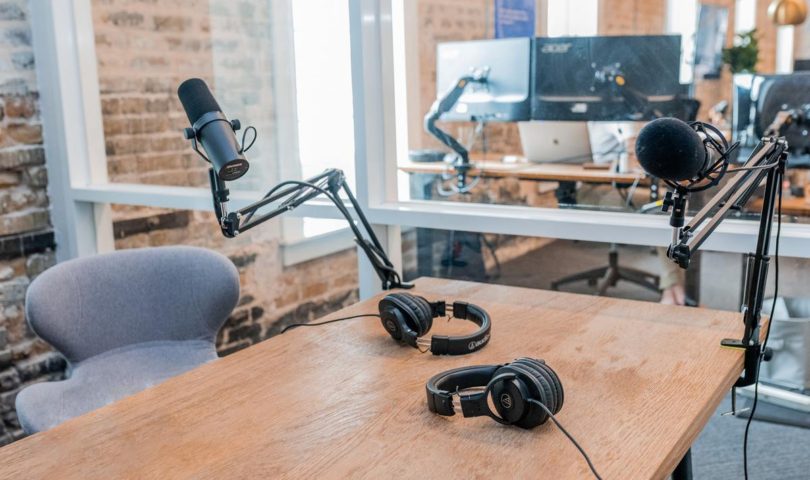Over the past ten years, podcasts have taken over the internet by storm, as there is a podcast for every situation and mood. When exactly did podcasts become so well-known, and why do so many people enjoy listening to them?
In August of 2004, the first modern podcast, “The Daily Source Code,” was launched by Adam Curry. People all over the world were listening to “The Daily Source Code” within a month of it being aired. (“The Daily Source Code” is now one of the most popular podcasts on the Internet, where Adam Curry discusses his everyday life and what’s happening in the podcasting world.) In November of 2004, the first podcast hosting platform, Libsyn, was launched. In June 2005, Steve Jobs announced that podcasts would be offered in the 4.9 version of iTunes. By 2014, Apple had more than a billion podcast subscribers, spread across 25,000 unique podcasts in more than 100 languages. 2016 research discovered that more than a third of all Americans listen to podcasts, with 36 percent of weekly listeners listening to between three and ten hours per week.
It’s no surprise that so many people have incorporated podcasting into their daily routines due to the numerous benefits of listening to podcasts, such as staying informed, escaping daily life, and optimizing your time.
In this busy world today, it’s easy to feel like you don’t have enough time to constantly keep up with everything that’s going on in the world. Podcasts make this task easy, as there are many podcasts that explain politics and current events. For example, the New York Times’ podcast, “The Daily,” hosted by political journalist Michael Barbaro, is based on the Times’ reporting of the day, with 20-30 minute episodes aired every weekday. “Pod Save America,” recommended to me by Ms. Kalinski, is hosted by four former aides to President Obama — John Favreau, Dan Pfeiffer, Jon Lovett, and Tommy Vietor — who are joined by journalists, politicians, comedians, and activists for lively conversations discussing politics and the challenges posed by the Trump presidency.
Along with staying informed, podcasts also allow listeners to feel like they have a relationship with the podcast host. Podcast listeners enjoy the engagement with the speaker. When listening to a podcast, it feels like the speaker is speaking directly to the listener, creating a personalized connection. This level of immersion draws the listener in, the “intimacy effect” of audio. Podcasts feel closer to us than radio, as listeners are able to choose what kind of content they hear. “As podcasts are becoming more evolved, a lot of well-known people are recording podcasts, giving people access to those talented people in a format where you wouldn’t otherwise get access to them,” says Ms. Kalinski, a US History teacher. For example, Ms. Kalinski listens to “WTF,” hosted by Marc Maron, which consists of comedy and interviews.
Finally, listeners of podcasts are able to use their time to the fullest. There are many areas in people’s lives that are either filled with silence or with music, like during a commute, walking a pet, and completing household chores. By replacing those spaces with a podcast, listeners are able to complete their busywork while learning something new and expanding their worldviews. “I enjoy listening to podcasts because I’m able to broaden my horizons. There is so much information out there. It’s cool to see that other people are interested in stuff you’re interested in and have so much expertise about those topics,” comments Audrey Morganstern, a junior and secretary of the Broadcasting Club, which focuses on channeling the stories that different students have to share through audio documentaries.
“Podcasts tell new, interesting stories in a short form so in a 40-minute car ride you get a beginning, middle, and end of a story, which are able to hold your attention for the entire duration of a car ride.”
If you want to learn more about the world while simultaneously being entertained, try listening to a podcast!

